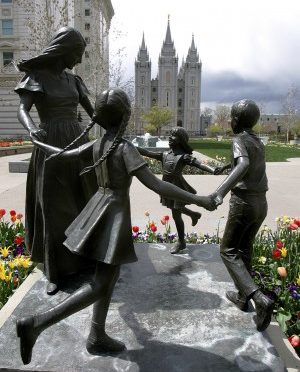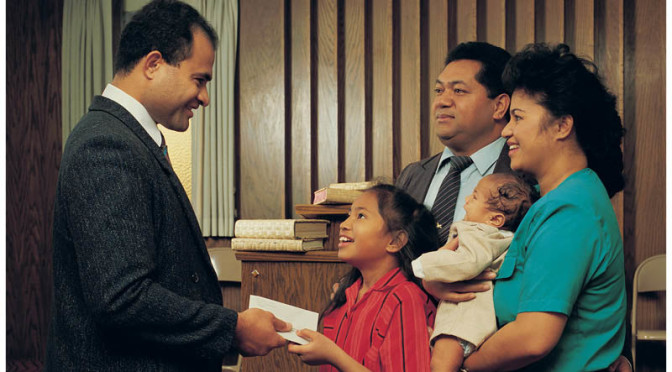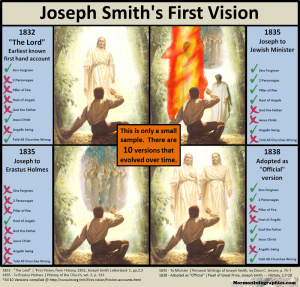Years ago, at my brother’s LDS Temple wedding, as we waited outside, my wife and I were approached by a member of my childhood ward and her husband. She was my first cub-scout leader, and a primary teacher. Her husband was one of my Scout and Priesthood leaders. She expressed her hope that I would someday be sealed within the Temple. I dismissed them rather flippantly by telling them that it’ll never happen. “Never say never” was their retort. A few weeks later, I wrote this letter, which I decided against sending:
[The names have been changed]
Michelle,
I have to say I was caught off-guard by your comments at the Temple after James’ wedding, and apologize if my responses were a bit harsh. Frankly I was focusing a bit on James and Becki and the long day ahead of my family and I. I just wanted you to know that I love and respect both you and Brian a great deal. I have learned a great deal from both of you; how not to cut my hand off with a knife, how to avoid setting fire to my house, how to sand down wooden race vehicles, and much, much more.
I am sure you had the best of intentions at heart, and your attempt to shame me into a temple sealing was strikingly more tactful than Brother Akiona’s heavy-handed method. It may be that I bring these comments on myself. Perhaps I emanate an air of uncertainty, insecurity, and self-doubt with regards to spirituality. I assure you that nothing could be further from the truth.
I am not sure if you have gone through something similar, but the decision to go against the predominant teachings of one’s entire life is not an easy one. Similarly, knowing that you will disappoint and embitter one’s entire family, becoming a kind of second-rate family member is not an option that is taken without serious thought.
Admittedly, a great deal of my initial issues with the LDS faith were a matter of 17-year-old rebellion. A know-it-all, stubborn quality that you, as a mother and teacher, probably find all too familiar. That rebellion has led to years of abundant research, on my part, of history, religions, spirituality, and philosophy. A great deal of time has been spent in quiet contemplation of these materials along with my own thoughts and conclusions. It is still an eminent subject of reading, thought, and discussion.
I do hope you posses high enough opinion of my character to believe that I would not have shamed and tormented my grandparents, my sister, my brother, my mother, and most of all, my father without some deliberate and methodical reflection. My father, I think you will agree, was a man of unquestioned faith and uncompromising morals. I am sure that Brian and others have, on numerous occasions, listened to the disapproval of his eldest son and the ‘misguided’ choices he made. It pains me to no end to think of the sadness and disappointment I must have caused him. A sadness and disappointment that never was, nor ever will be resolved. I asked myself, however, would he have not done similarly in order to live his life according to his beliefs?
Perhaps lacking in my decision process was a consideration of those other people who may have felt, at one time or another, responsible for me and my spiritual education. People like you, Brian, David, Christine, Bob, Mary, Pauleen, Elijah, and so many other respected people.
I don’t doubt your faith or your testimony. I know you live a charitable, compassionate, and faithful life. I am sorry for the disappointment I may cause you and others. I am not sorry that I live my life according to my beliefs. I am not sorry for questioning my beliefs, past or current, even if it is unpleasant to do so. I still remember the story of a 14-year-old boy questioning the teachings of those closest to him.
You are right to point out the folly in my saying, “never.” I will grant that, however unlikely, it is possible that someday, due to continued searching and questioning, I may find that the initial teachings of my life were always correct. If so, I will humbly admit my mistakes and return. Having said that, if such a thing does occur, it will not because someone tells me that my father always wanted me to view the Temple, or because I want to see my sister’s wedding. It will be because I have spent hours and perhaps years in careful reflection of those beliefs. There is no end on the journey for knowledge and understanding.
I hope that this letter finds you well and is received in the manner it was intended. It was my intention to reassure you that, as disappointing as it may be to those close to me, I am living a happy, complete, and content life.
Justin
“Scars have the strange power to remind us that our past is real.” – Cormac McCarthy




